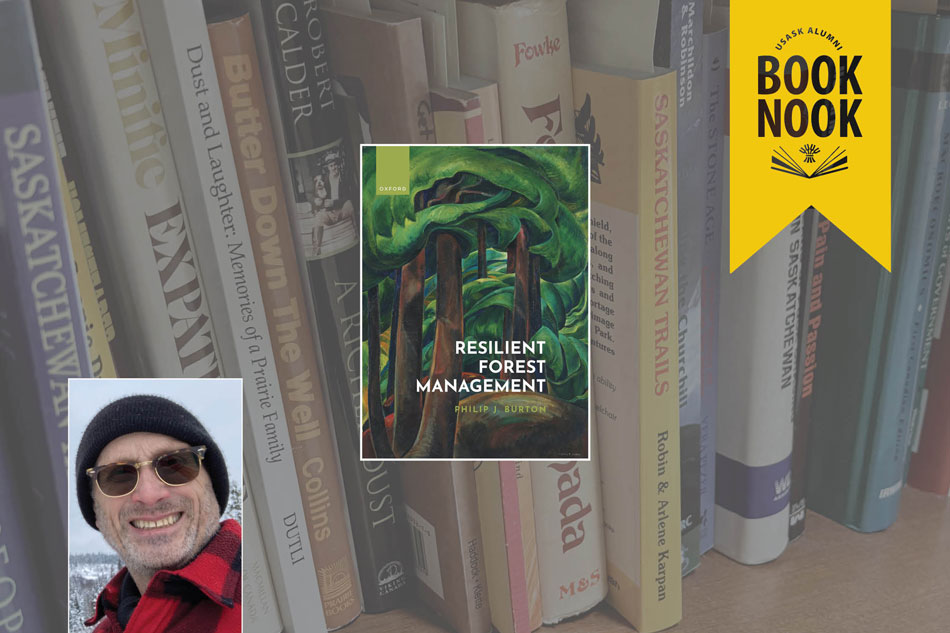
Alumni Book Nook: Dr. Philip J. Burton (BSc’78)
Botanist and plant ecologist Dr. Philip J. Burton has written a new book focusing on sustainable resource management
University of Saskatchewan (USask) graduate Dr. Philip J. Burton (BSc’78), a botanist and plant ecologist who has been studying ecosystem dynamics for more than 35 years, has written a new book that outlines a comprehensive approach to sustainable resource management.
Resilient Forest Management was released by Oxford University Press on April 10, 2025. It is the fourth book that Burton has written, co-written, or co-edited, including Towards Sustainable Management of the Boreal Forest (2003, co-edited), Salvage Logging and Ecological Consequences (2008, co-written), and Drivers of Change in the Northwest Boreal Region (2019, co-edited).
Burton studied biology in USask’s College of Arts and Science, earning his Bachelor of Science (honours) degree in 1978. He then went on to earn a master’s degree at the University of Hawaii and a PhD at the University of Illinois. He currently lives in Terrace, B.C., where he is a professor emeritus at the University of Northern British Columbia.
The Green&White recently asked Burton about his new book and what inspired him to write it.
What have you been doing since you graduated from USask?
I obtained my MSc and PhD from U.S. universities, then returned to Canada after a postdoc. I’ve worked as an environmental consultant, as a research manager with the Canadian Forest Service, and as a professor at the University of Northern British Columbia. I have lived and worked in B.C. since 1989, except for sabbaticals in Massachusetts and New Zealand. My early research on forest regeneration progressively led me into the worlds of silviculture and forest policy, which are so important in B.C.
What is the focus of your new book?
It reviews the basic concepts of sustainable forest management through a lens of ongoing change and calls for a more ecological approach to forestry. Climate change, mega-fires, insect outbreaks, and invasive species all threaten forest sustainability, but the forest products sector is also challenged by changing values and trade barriers. A new approach to forest stewardship is called for, and the principles of complex adaptive systems provide some solutions. This book takes those principles to map a way forward for progressive forestry in uncertain times, supported by several examples and case studies.
What inspired you to write this book?
I was increasingly worried that sustainability is unattainable under the suite of rapid changes facing species, ecosystems, and communities around the planet. We need a new paradigm for resource management, one that encourages flexibility and caution while still aspiring to sustainability.
What are five adjectives that you would use to describe your book?
Well, I would like to think it is adaptive, comprehensive, critical, innovative, and insightful!
Why would you recommend your book to USask alumni?
Although it focuses on the many policies, practices, and challenges faced by foresters, it also offers a new paradigm for resource management in general. Along the way, it explores issues of drought preparation, corporate control, and community empowerment to which many readers will relate—or with which they may disagree.
Is there anything else you would like to add?
Sure. I would just add that the importance of rural shelterbelts and urban trees is included, in addition to a broader scope that repeatedly refers to parks, industrial timber lands, and multiple-use forests. Of potential interest to USask alumni is that there are several examples from the prairie provinces. The table of contents and chapter abstracts can be viewed online.


